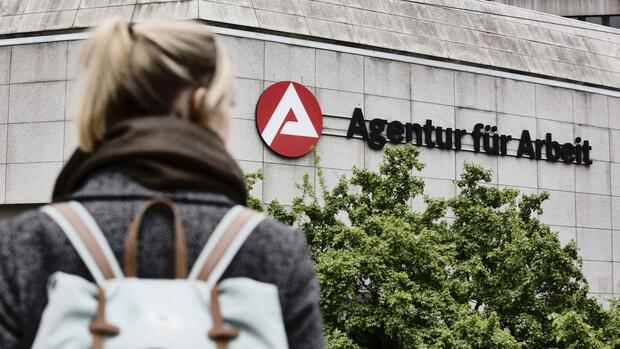Companies are more cautious.
(Photo: imago images/imagebroker)
Berlin The uncertainty about the further development of the Ukraine war and its possible economic consequences are now also affecting the labor market. While the Ifo employment barometer rose sharply in February, the indicator has now fallen significantly. In March it was 102.1 points, after 104.3 points in February. This is the lowest value since May 2021.
Ifo President Clemens Fuest told the Handelsblatt: “In this critical and very uncertain situation, I don’t expect a wave of layoffs.” But when it comes to hiring, “many companies are holding back”. It could therefore be that the recovery of the labor market after the corona pandemic will be slowed down. However, there are no signs of an increase in unemployment at the moment, says Ifo researcher Klaus Wohlrabe.
The Ifo employment barometer is based on the employment intentions of around 9,000 companies surveyed and is calculated monthly exclusively for the Handelsblatt. The sub-indicator for the industry, which was already suffering from a lack of parts before the Russian attack, fell sharply.
Enzo Weber from the Institute for Labor Market and Vocational Research (IAB) in Nuremberg says: “The already significant supply chain problems are being exacerbated by the war in Ukraine.” However, a lot on the labor market can be cushioned with the instrument of short-time work.
Top jobs of the day
Find the best jobs now and
be notified by email.
The federal government has already decided to extend easier access. If necessary, it can also determine by ordinance that employers will be reimbursed in whole or in part for the social contributions for short-time work. But if the war leads to permanently high energy prices, the federal government must also think about other forms of economic aid, says Weber. Short-time work is suitable for cushioning supply chain problems, but not for high energy costs.
510
thousand
there should be more people in employment than in the previous year on average in 2022. Source: IAB forecast
In its forecast for 2022 published a few days ago, the IAB assumes that, despite the war, the number of people in work will increase by a good half a million in the current year. “We had already left the deep Corona valley far behind us at the beginning of the year and had almost reached the pre-crisis level in terms of employment,” says Weber. In its forecast, the think tank of the Federal Employment Agency (BA) assumes that the war will remain limited to Ukraine, but will not be over quickly either.
According to the IAB forecast, the number of unemployed should be 350,000 below the figure for the previous year on average for the year. However, in addition to the war, there is another factor of uncertainty, says Weber: “If China reaches its limits with its zero-Covid strategy and seals it off more extensively again, you can count on ten fingers that this will also have an impact on supply chain disruptions and the global economy .”
Hospitality is looking for staff
According to the Ifo employment barometer, the willingness to hire has been dampened by the economic uncertainty across all sectors. In addition to the indicator for industry, the values for the service sector, trade and construction have also fallen.
The hospitality industry continues to look for new staff after the end of most corona restrictions. Trade could also benefit from the easing. Nevertheless, the surveyed companies in the industry are more pessimistic than they have been since April last year. The fact that the sharp rise in prices may dampen consumer spending could play a role here.
However, all sub-indicators of the employment barometer are still positive. This means that the number of companies that want to increase staff exceeds the number of companies planning layoffs.
More: These ten points show the drama on the commodity markets.
